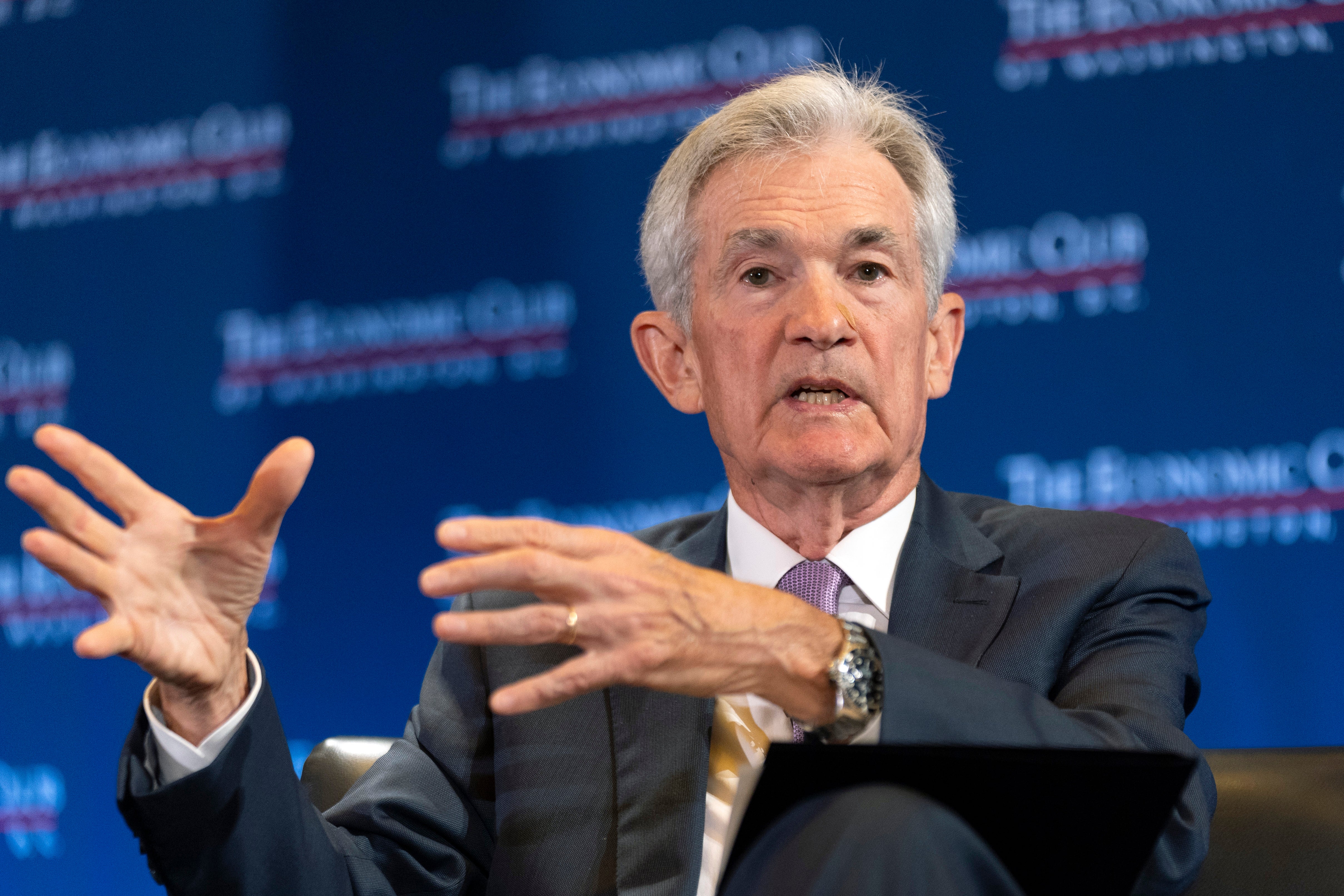Why the mediocre jobs numbers might be a good thing for Kamala Harris
A weak employment report is just the latest sign that the Federal Reserve could offer some relief

Your support helps us to tell the story
From reproductive rights to climate change to Big Tech, The Independent is on the ground when the story is developing. Whether it's investigating the financials of Elon Musk's pro-Trump PAC or producing our latest documentary, 'The A Word', which shines a light on the American women fighting for reproductive rights, we know how important it is to parse out the facts from the messaging.
At such a critical moment in US history, we need reporters on the ground. Your donation allows us to keep sending journalists to speak to both sides of the story.
The Independent is trusted by Americans across the entire political spectrum. And unlike many other quality news outlets, we choose not to lock Americans out of our reporting and analysis with paywalls. We believe quality journalism should be available to everyone, paid for by those who can afford it.
Your support makes all the difference.On Friday, the Bureau of Labor Statistics released the latest jobs numbers, which showed that the US economy added 142,000 jobs. That is higher than the 99,000 jobs that ADP predicted, but still lower than most expectations.
The number may not seem that relevant, especially given that President Joe Biden is no longer running for re-election and most people blamed Biden for the bad economy. But it still means something.
Vice President Harris has sought to separate herself from Biden’s economic policies somewhat. In New Hampshire this week, she announced that she would support a 28 percent tax on capital gains for people earning a million dollars or more, which is about 10 points lower than Biden’s proposed 39.6 capital gains tax increase.
Harris has also emphasized the cost of housing during her campaign, touting a specific plan to help people buy a home. Polling shows that the economy continues to be the top issue for young people.
Number of jobs added is a bellwether of the economy, of course. But while the number of jobs was not stellar, it might be a tea leaf for a potential break for the vice president: a cut in interest rates.
Typically, presidents welcome a hot labor market. But increased consumer demand, combined with rising wages, creates an enviromment ripe for inflation.
Inflation and the cost of living has persistently plagued the Biden administration. Republicans have blamed Biden’s American Rescue Plan Act, his Covid-19 relief bill, for flooding the economy with money.
While the stimulus slightly contributed to inflation, it also came as the world economy attempted to get back on its feet after the pandemic. It’s also important to note that inflation has remained lower in the United States than elsewhere. The war in Ukraine contributed to a spike in energy prices, making matters worse.
This explains Trump’s bizarre press conferences, where he displays Cheerios and bacon (which he says have seen price increases, while talking about wind power).
The Federal Reserve has consistently raised interest rates to cool employment and consumer demand. Federal Reserve Chairman Jerome Powell warned back in 2022 that the increased interest rates would “bring some pain to households and businesses.”
It should be noted that despite Trump nominating Powell, he has sharply criticized he Federal Reserve Chairman, whom Biden nominated to serve a second term.
Indeed, the criticism of Powell has been bipartisan. Democrats such Senator Elizabeth Warren have chided Powell for not cutting rates sooner.
But a labor market that is slowing down — combined with the fact that inflation has largely cooled — could offer the incentive for Powell to finally lower interest rates. That could offer the boom to the economy that Harris needs.
During Powell’s speech in Jackson Hole last month, he seemed to indicate an imminent change in policy.
“The time has come for policy to adjust,” he said. “The direction of travel is clear, and the timing and pace of rate cuts will depend on incoming data, the evolving outlook, and the balance of risks.”
Powell said that he was optimistic that the economy will revert to 2 percent inflation, the Fed’s preferred target, while the labor market remained strong.
“The current level of our policy rate gives us ample room to respond to any risks we may face, including the risk of unwelcome further weakening in labor market conditions,” he added. The Federal Reserve will next meet later this month.
A rate cut would make it easier for businesses to borrow and encourage some people to buy houses. Similarly, lower interest rates — even very slightly lower ones — could contribute to increased hiring right before the election. Offering that type of jolt into the economy could ultimately be what Harris needs to increase enthusiasm and keep the momentum going.
Join our commenting forum
Join thought-provoking conversations, follow other Independent readers and see their replies
Comments